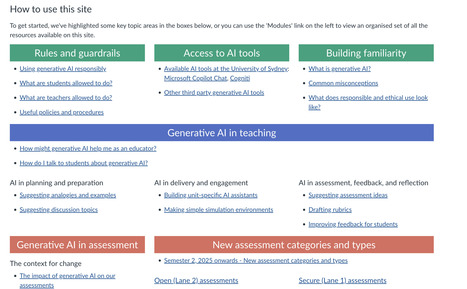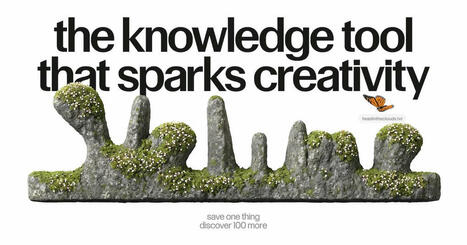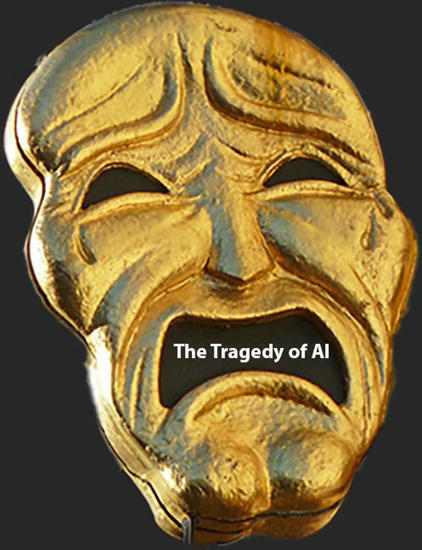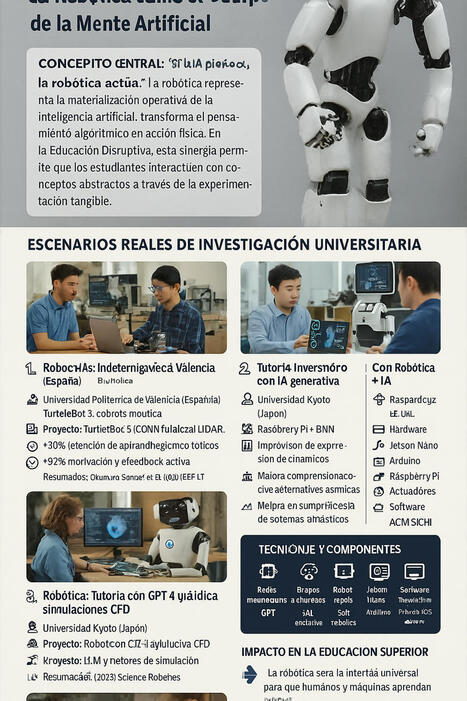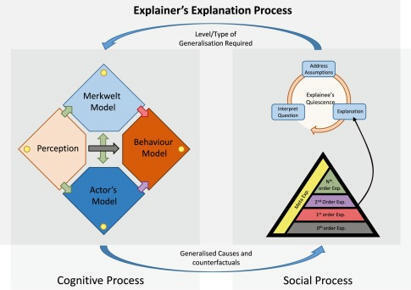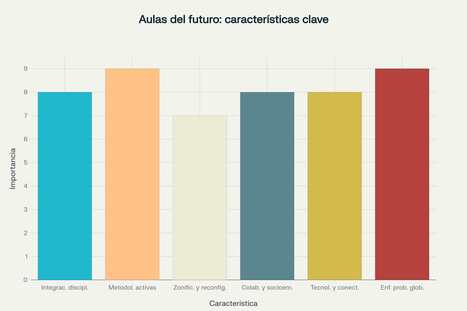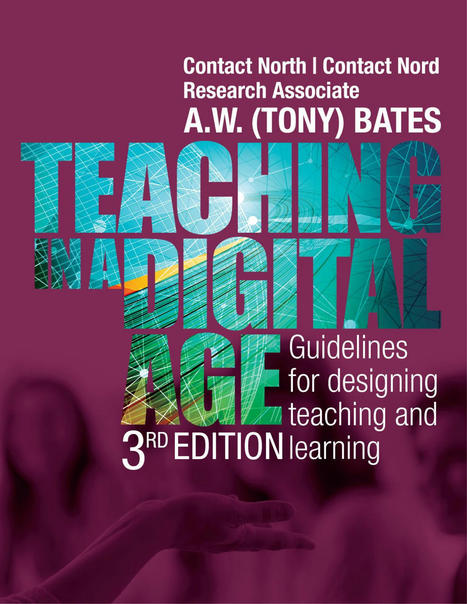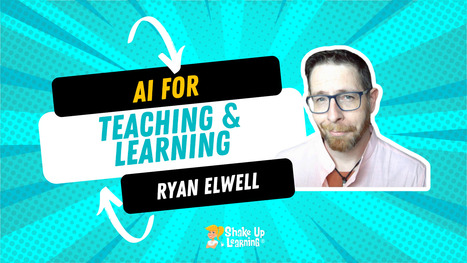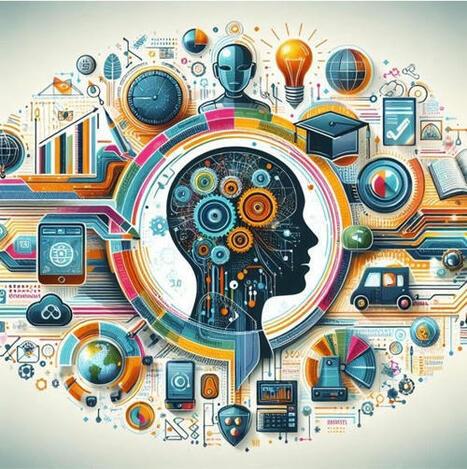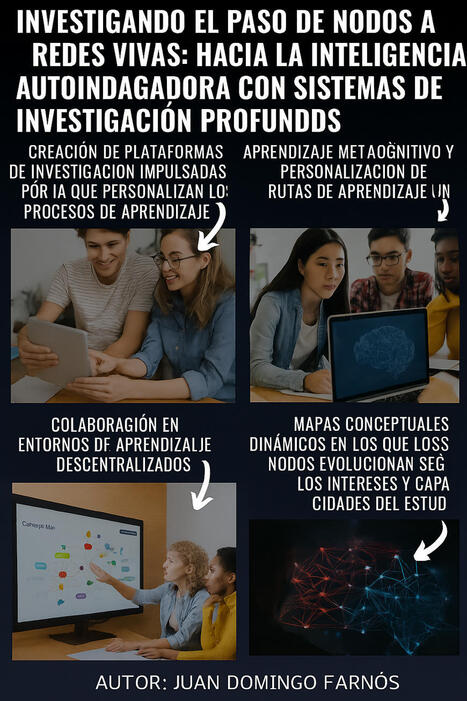 Your new post is loading...
 Your new post is loading...
Por Mercedes Leticia Sánchez Ambriz y Carlos Bravo Reyes Elaborada en POE Escucha el podcast En colaboración con Mercedes Leticia Sánche
Via LGA
Una conversación urgente entre inteligencias Dos artículos firmados por Ricard Lloria y una defensa escrita en primera persona se encuentran en esta entrega para trazar una mirada lúcida y ética sobre el lugar que ocupamos —y queremos seguir ocupando— en medio de la revolución tecnológica. Inteligencia artificial, trabajo y dignidad humana no se oponen: dialogan.…
Via Ricard Lloria, Mariano Ramos Mejia

|
Rescooped by
juandoming
from e-learning-ukr
June 29, 10:38 AM
|
With the rise of generative AI models, such as large language models (LLMs), in educational settings, there is a growing demand to ensure the quality of AIgenerated multiple-choice questions (MCQs) used in higher education. Traditional quiz
Via Vladimir Kukharenko

|
Rescooped by
juandoming
from Technology Innovations
June 27, 11:34 AM
|
When Aquant Inc. was looking to build its platform — an artificial intelligence service that supports field technicians and agents teams with an AI-powered copilot to provide personalized recommendations and support agents — it needed something that could ground its AI models with real-time knowledge.
The solution: a vector database.
Via Tony Shan
AI’s infiltration of higher ed should prompt faculty to redefine their roles from exposing students to content to developing competencies.
Via EDTECH@UTRGV

|
Rescooped by
juandoming
from e-learning-ukr
June 26, 1:07 AM
|
Scenario-based learning for compliance stands out as a highly effective approach, particularly where context and nuance play a crucial role.
Via Vladimir Kukharenko

|
Rescooped by
juandoming
from Digital Delights
June 24, 11:53 AM
|
"This site is a resource designed for educators by educators, created to support the productive and responsible use of generative artificial intelligence in teaching and learning at the University of Sydney and beyond. This site complements our 'AI in EducationLinks to an external site.' site which is designed for students by students, and contains resources and advice."
Via Ana Cristina Pratas

|
Scooped by
juandoming
June 23, 9:03 AM
|
Juan Domingo Farnos La confluencia entre sistemas cognitivos artificiales y entornos académicos redefine la ingeniería pedagógica hacia modelos adaptativos y autorregulados de conocimiento. Estas arquitecturas no solo interpretan el lenguaje humano, sino que lo reconceptualizan como vector de aprendizaje emergente y colaborativo. La sinapsis entre redes neuronales profundas y bases epistémicas universitarias permite una retroalimentación…
Sublime is a personal knowledge management tool designed to help you save, organize, and create with everything that inspires you. Trusted by leading thinker
Via Ana Cristina Pratas
Image adapted from Tragedy and Comedy by Tim Green CC BY A tragedy is characterized by four things: A heroic noble protagonist Fatal flaw(s) An inevitable downfall Catharsis
Via Vladimir Kukharenko, Ricard Lloria
The PISA 2029 Media & Artificial Intelligence Literacy (MAIL) assessment will shed light on whether young students have had opportunities to learn and to engage proactively and critically in a world where production, participation, and social networking are increasingly mediated by digital and AI tools.
Via Tom D'Amico (@TDOttawa)

|
Scooped by
juandoming
June 17, 9:24 AM
|
Juan Domingo Farnos En la Eduacion disruptiva & IA queremos ver la robotica como el brazo fisico de la IA y como un elemento indispensable para ocupar un espacio y un instrumento que nos lleva en el plano de la ingenieria a desarrollar la misma IA como algo mas cercano y de mas facil acceso…

|
Rescooped by
juandoming
from Edumorfosis.Work
June 16, 8:26 AM
|
Business leaders are at a crossroads with AI. On one path, there’s understandable skepticism: AI has been overhyped, and many initial investments haven’t delivered the promised returns. But the other path can lead to a transformative reality: AI is already boosting revenue and reshaping industries. Within the next 12 to 24 months, AI agents are expected to revolutionize how businesses operate, enabling companies to make strategic moves at a pace and magnitude previously unimaginable. Business models that rely on traditional scale can give way to those favoring agility and innovation.
The winners won’t prevail because of better technology. They’ll rethink the nature of work and what that means for the organization. These companies understand that, if scale now matters less, speed matters more and innovation matters most of all. AI leaders also know that the real advantage comes in being able to pick and choose the right agents for each requirement — whether they’re AI agent features embedded within enterprise applications, standalone AI agent applications, or highly specialized AI agents built inhouse. As they roll out more and more AI agents to perform more and more specialized tasks, they’ll use an AI agent operating system like PwC’s agent OS to orchestrate disparate agents into all-new workflows and processes. In this way, companies will be able to quickly and effectively scale AI while managing risk, cost and complexity.
Via Edumorfosis
|

|
Rescooped by
juandoming
from Edumorfosis.it
June 30, 1:04 AM
|
The education system is dying. AI didn't kill it—but our reaction to AI will determine what replaces it.
Via Edumorfosis

|
Scooped by
juandoming
June 29, 10:40 AM
|
Juan Domingo Farnos En 2020, Taylor integró la psicología cognitiva en la inteligencia artificial explicable (IAX), con el fin de optimizar la interpretabilidad, la equidad y la transparencia en los modelos de aprendizaje automático. Esta incorporación ha sido fundamental en el desarrollo de la IA dentro de la Educación Disruptiva, creando una conexión entre los…

|
Scooped by
juandoming
June 27, 11:37 AM
|
Juan Domingo Farnos La Nueva Aula universitaria se configura como un espacio neuro-sináptico, donde la interacción entre agentes humanos y sistemas inteligentes genera un entramado cognitivo dinámico que trasciende la linealidad tradicional del aprendizaje. Este ecosistema se rige bajo principios de pedagogía híbrida posthumana, en la que el rol del sujeto educativo se redefine al…

|
Rescooped by
juandoming
from Educational Technology News
June 27, 11:33 AM
|
A new framework outlines eight ethical principles to guide higher education’s implementation of artificial intelligence.
Via EDTECH@UTRGV

|
Rescooped by
juandoming
from e-learning-ukr
June 26, 8:12 AM
|

|
Rescooped by
juandoming
from Inovação Educacional
June 26, 1:06 AM
|
Me refiro aos avanços mais recentes de inteligência artificial generativa (ChatGPT e afins) e, de maneira mais ampla, às grandes transformações tecnológicas que estamos experimentando em um ritmo cada vez mais acelerado – por exemplo: na semana em que começo a escrever este texto, o Vision Pro, novo óculos de realidade mista da Apple, acaba de ser anunciado.
Via Inovação Educacional

|
Rescooped by
juandoming
from Education 2.0 & 3.0
June 24, 11:51 AM
|
Discover practical, human-centered strategies for AI in education with “AI for Teaching and Learning: Human Approaches for Technology Integration.” Learn how to integrate AI tools meaningfully in your K-12 classroom to enhance teaching and build educator confidence—without losing the human touch.
Via Yashy Tohsaku
Por Mercedes Leticia Sánchez Ambriz y Carlos Bravo Reyes Con la colaboración de la Dra Mercedes Leticia Sánchez Ambriz. Escucha el pódcas...
Via LGA

|
Rescooped by
juandoming
from Technology Innovations
June 19, 1:11 AM
|
Artificial intelligence has evolved to go beyond crunching data and answer questions. It has stepped into roles that involve developing strategies,
Via Tony Shan

|
Scooped by
juandoming
June 18, 10:39 AM
|
Juan Domingo Farnos La integración de la inteligencia artificial (IA) en el campo de la educación está marcando una transformación sin precedentes, una que está redefiniendo no solo los métodos pedagógicos, sino también las estructuras organizacionales y los modelos de aprendizaje. El estudio de la Universidad de Zhejiang, que examina los sistemas de investigación profunda…

|
Rescooped by
juandoming
from e-learning-ukr
June 18, 10:36 AM
|
Learn how institutional leaders can develop mission-driven AI policies that balance innovation, ethics, and stakeholder needs in higher education.
Via Vladimir Kukharenko

|
Rescooped by
juandoming
from Inovação Educacional
June 17, 1:18 AM
|
This Outlook report, prepared by the European Commission’s Joint Research Centre (JRC), examines the transformative role of Generative AI (GenAI) with a specific emphasis on the European Union. It highlights the potential of GenAI for innovation, productivity, and societal change. GenAI is a disruptive technology due to its capability of producing human-like content at an unprecedented scale. As such, it holds multiple opportunities for advancements across various sectors, including healthcare, education, science, and creative industries. At the same time, GenAI also presents significant challenges, including the possibility to amplify misinformation, bias, labour disruption, and privacy concerns. All those issues are cross-cutting and therefore, the rapid development of GenAI requires a multidisciplinary approach to fully understand its implications. Against this context, the Outlook report begins with an overview of the technological aspects of GenAI, detailing their current capabilities and outlining emerging trends. It then focuses on economic implications, examining how GenAI can transform industry dynamics and necessitate adaptation of skills and strategies. The societal impact of GenAI is also addressed, with focus on both the opportunities for inclusivity and the risks of bias and over-reliance. Considering these challenges, the regulatory framework section outlines the EU’s current legislative framework, such as the AI Act and horizontal Data legislation to promote trustworthy and transparent AI practices. Finally, sector-specific ‘deep dives’ examine the opportunities and challenges that GenAI presents. This section underscores the need for careful management and strategic policy interventions to maximize its potential benefits while mitigating the risks. The report concludes that GenAI has the potential to bring significant social and economic impact in the EU, and that a comprehensive and nuanced policy approach is needed to navigate the challenges and opportunities while ensuring that technological developments are fully aligned with democratic values and EU legal framework.
Via Inovação Educacional
|





 Your new post is loading...
Your new post is loading...







